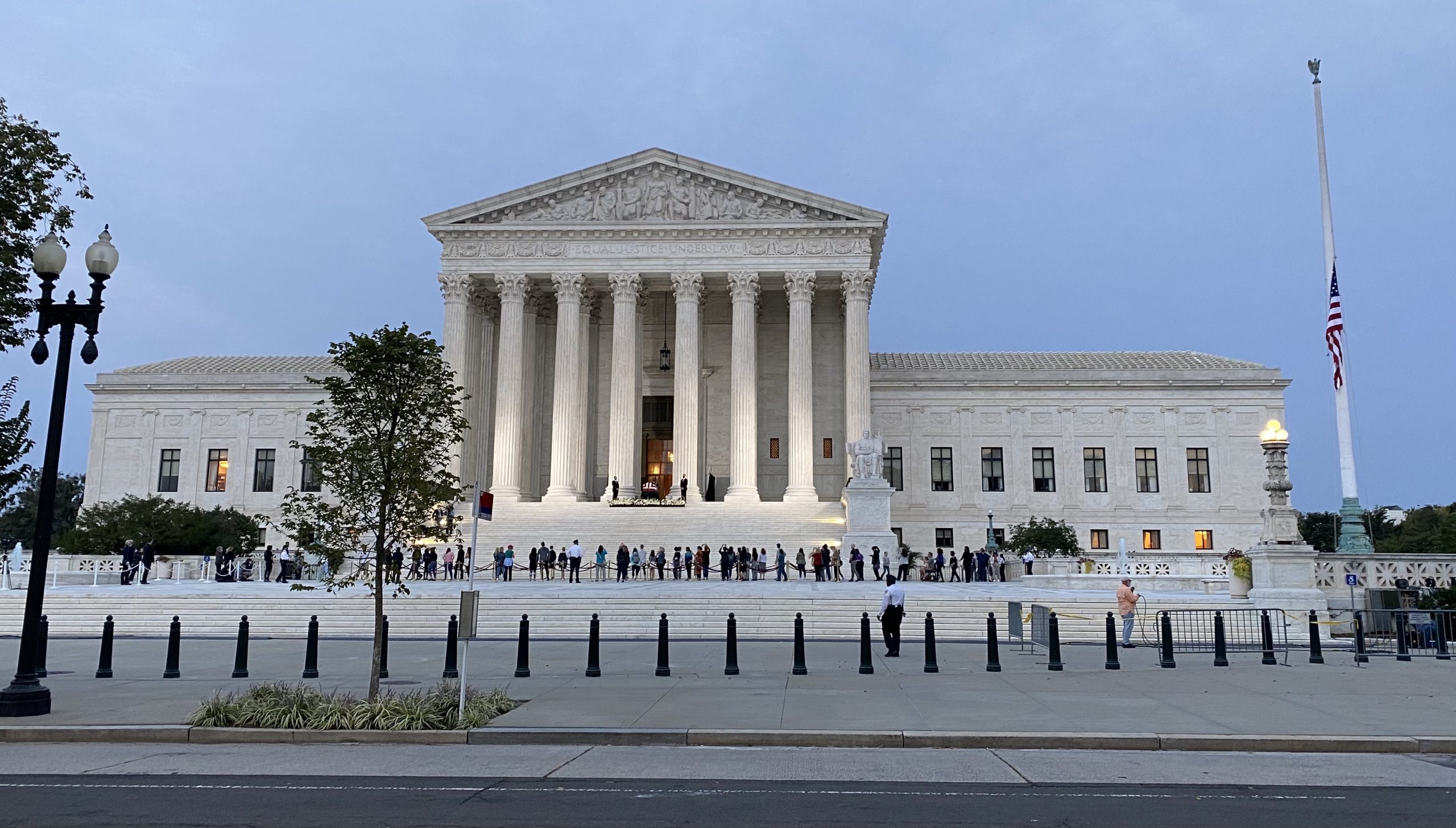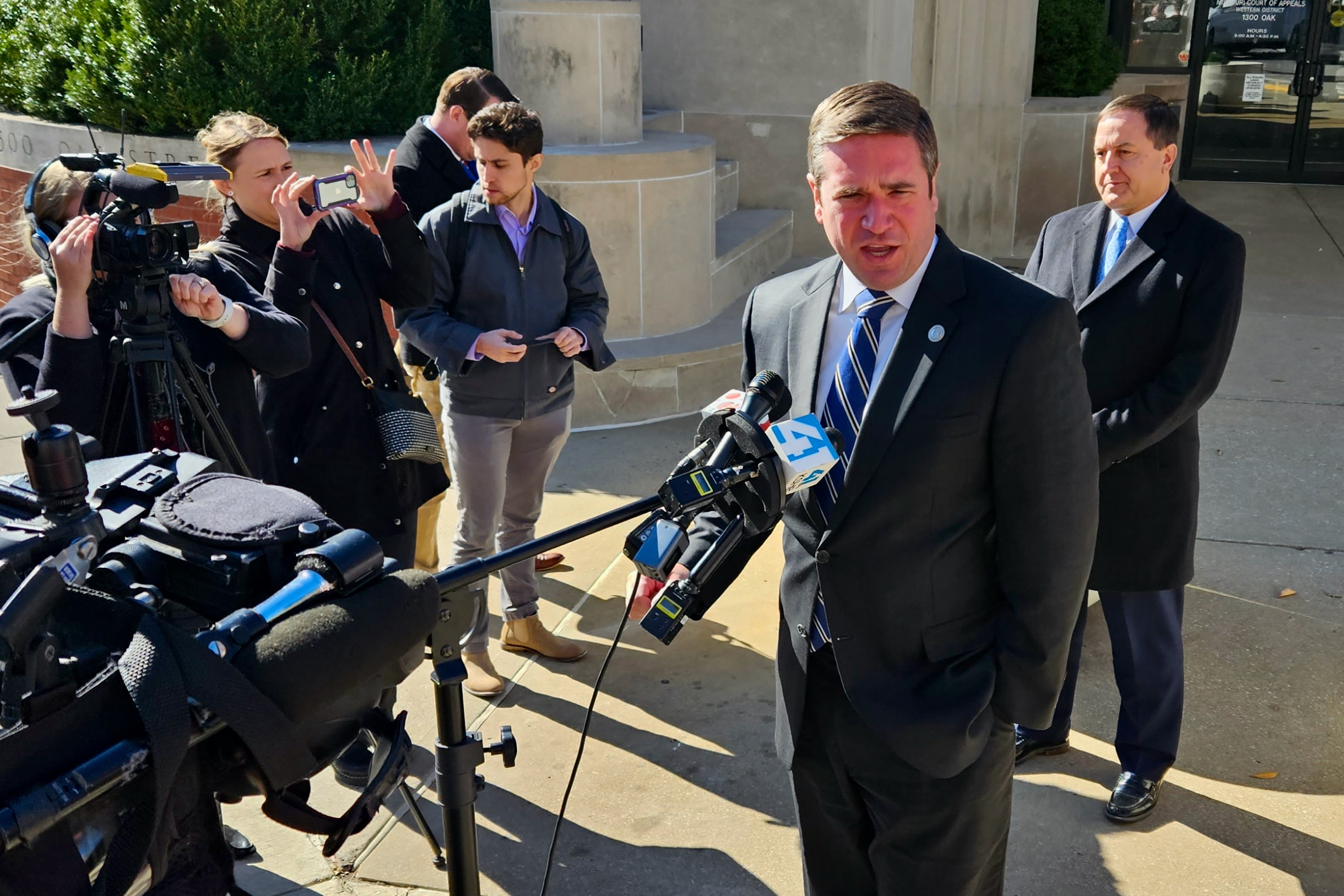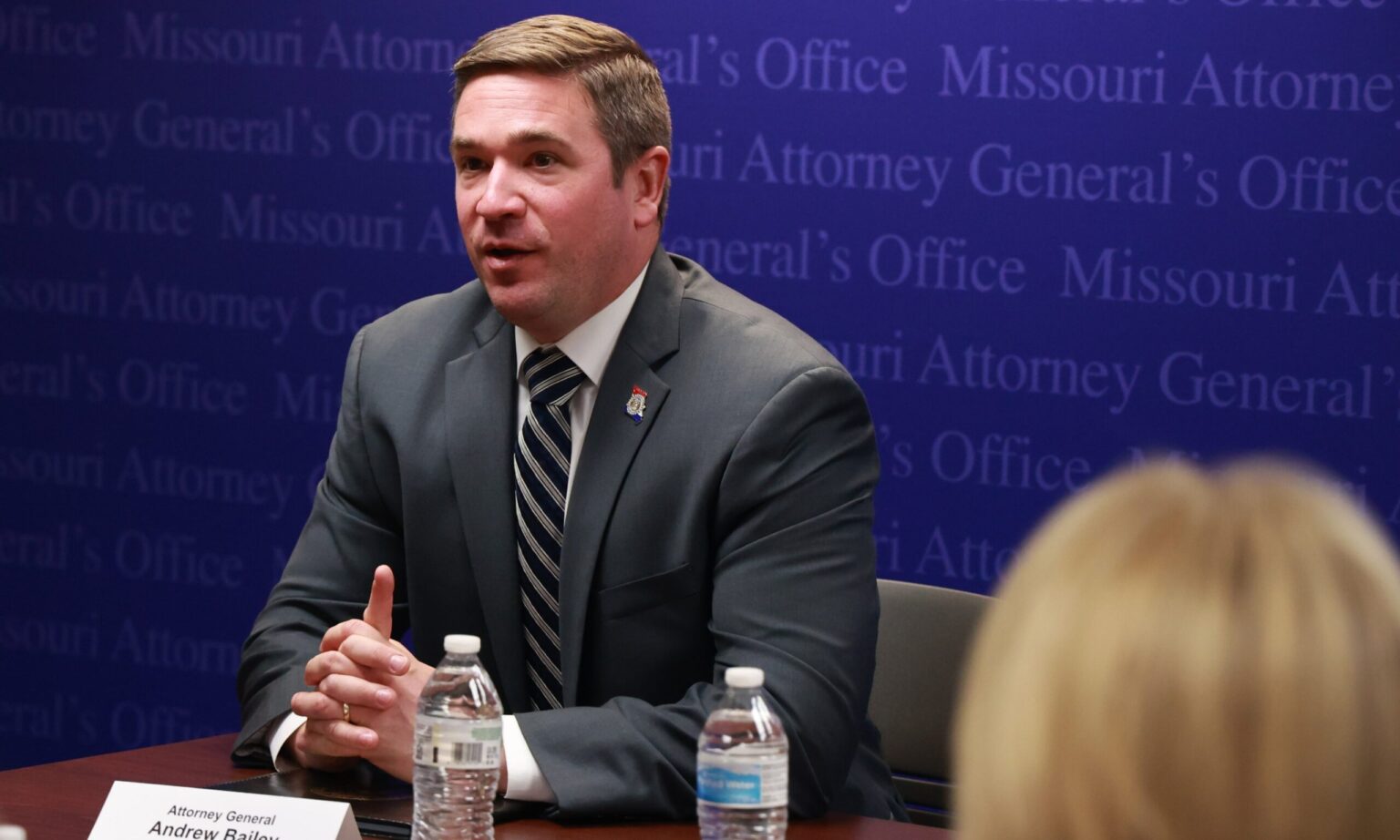5:50
Commentary
Missouri had an embarrassing trip to the U.S. Supreme Court last month, and things have gone downhill from there.
Murthy v. Missouri (formerly Missouri v. Biden), was filed in 2022 by our then-Attorney General Eric Schmitt and his Louisiana counterpart. They sued a slew of federal government agencies alleging that the agencies’ discussions with social media platforms about content moderation violated the First Amendment.
The case is an attempt to avenge those who believe that efforts by private companies and the federal government to diminish election and vaccine misinformation, hate speech, calls to violence and foreign influence amount to a conspiracy to discriminate against conservatives.
It’s a special kind of embarrassment for Missouri for multiple reasons.
The first is that Missouri and Louisiana put a bunch of lies in the record that their hand-picked Texas judge accepted, but these lies were exposed by the time the case got to the U.S. Supreme Court, making us look like clowns to even the conservative justices.
Worse, the mess of a factual record makes the case a terrible vehicle for clarifying the very important question of when government speech aimed at influencing citizens’ speech, known as “jawboning,” crosses a line into government coercion that violates the First Amendment.
The second is that Missouri Attorneys General Schmitt and his successor, Andrew Bailey, have been ridiculed by legal experts across the political spectrum for their hypocrisy on free speech, given their anti-speech actions outside of this case as well as their broader abuse of the legal process to fight culture wars.
The third is that this dangerous effort to limit free speech in order to foster disinformation has been quite effective
Lies and other weirdness in the Murthy v. Missouri record

Social media companies have economic and societal interests in not having misinformation and hate speech infect their platforms.
It’s not good for business to have a platform devolve into a swamp where advertisers see their content next to neo-Nazi propaganda. Nor for a platform to become known for perpetuating conspiracy theories. Or promoting outbreak-causing anti-vax content. Or fomenting violence.
This is why social media companies have trust and safety teams, terms of service agreements and content moderation policies that forbid or demote some speech that the First Amendment protects.
Sometimes, government officials alert social media companies when misinformation is flowing on a platform, as when foreign agents are impersonating Americans to spread election disinformation. Sometimes government officials loudly criticize companies for not dealing with misinformation or failing to adhere to their own policies. Other times, private companies consult government experts when they are trying to suss out what is misinformation and what isn’t, for example as they attempted to tamp down vaccine misinformation during the pandemic.
Bailey calls all this “a vast censorship enterprise.”
Missouri and Louisiana argued in Murthy v. Missouri that our federal government and social media companies talking to each other must stop. Bailey insists we need “a wall of separation between tech and state.”
But such a wall would actually be an unconstitutional restriction of speech. Social media companies have a right to speak to the government (or anyone else) and a right to control what speech appears on their platforms. The First Amendment doesn’t restrict these companies from limiting users’ speech because they are not state actors.
This is a problem for the effort to force companies to be more hospitable to disinformation and incitement. Missouri and Louisiana attempted to get around this by alleging that actions taken by the platforms were the result of government coercion. People who were there at the time, like former head of trust and safety at Twitter Yoel Roth, say that’s not what happened.
If the government was threatening companies into censoring speech, that would indeed be a First Amendment violation. But after an extensive (and likely expensive) fishing expedition, the attorneys general couldn’t find evidence of coercion — so they made some up.
In one particularly flagrant lie to the court, Missouri took an angry email from a White House official on an unrelated topic and pretended it was a demand that Facebook censor content.
The oft-quoted email read: “Are you guys f**king serious? I want an answer on what happened here and I want it today.”
That may be an unprofessional email, but it wasn’t about anything having to do with content moderation. It was taken from an exchange complaining about users being blocked from following the president’s Instagram account, which Facebook said was due to a technical problem.
Numerous other inaccuracies in the record have been cataloged by TechDirt’s Mike Masnick, Tech Policy Press, and others.
At oral arguments, multiple Supreme Court justices called out the lies in the record and a majority seemed loath to accept the states’ invitation to upend existing precedent under which the government is perfectly free to use persuasion to affect speech, but not coercion.
Bailey is Missouri’s speech coercer-in-chief
Many have noted that Bailey’s position in Murthy v. Missouri is incompatible with his position in two related cases concerning social media companies.
The Netchoice cases are challenges to laws passed by Texas and Florida that prohibit social media companies from moderating content in ways that discriminate on the basis of viewpoint. In other words, the laws would compel speech by requiring platforms to host content that they deem inappropriate or harmful.
This seems like a straightforward First Amendment violation, but Bailey filed an amicus brief arguing the laws should be upheld.
That is because Bailey is not seeking to protect against government intrusion on free speech.
On the one hand, he wants to bar the federal government from even criticizing speech he is in favor of. On the other, he wants state governments to be able to use the force of law to impose speech restrictions that require the platforming of right-wing misinformation and propaganda that the free market would otherwise diminish.
It’s a “heads-I-win, tails-you-lose” theory of free speech.
Worse, Bailey has repeatedly engaged in coercive behavior in his official capacity in order to suppress speech he doesn’t like.
Bailey joined a group of Republican attorneys general in sending a letter to Target threatening the company with legal consequences for selling LGBTQ-themed Pride gear. As First Amendment lawyer Ari Cohn wrote, Target’s products were “emphatically, and unquestionably protected by the First Amendment,” and the attorneys general’s letter implicitly condoned threats of violence against Target employees that had caused the company to remove or relocate the merchandise.
Bailey has also filed a lawsuit seeking to enjoin Planned Parenthood from referring minors out of state for legal abortions, which is also clearly protected by the First Amendment.
Asked to respond to criticism of the lawsuit from me and others, Bailey admitted that giving out information about obtaining an abortion out of state is not illegal.
Most recently, Bailey has taken a lighter to the First Amendment by using his governmental power to punish Media Matters for reporting things that he doesn’t want reported.
Media Matters, a left-leaning non-profit media watchdog, reported on the fact that since Elon Musk took over Twitter there has been an increase in hate speech that caused advertisements to appear next to neo-Nazi content. Musk doesn’t deny this happened, but nonetheless sued Media Matters for reporting that it did. A similar lawsuit Musk filed against another group has already been dismissed by a judge who didn’t mince words, “This case is about punishing the defendants for their speech.”
Bailey, in an olympic act of Musk sycophancy and “free speech for me, but not thee” legal innovation, has sought to add some governmental muscle to Musk’s anti-speech crusade by claiming that Media Matters has violated the Missouri Merchandising Practices Act, on the absurd theory that the organization duped donors into supporting the kind of work it has always done.
Bailey can lose in court, but succeed at suppressing vital speech

Bailey, his predecessor and the big guys whose favor they are seeking are on the wrong side of the First Amendment. They will ultimately be told this by the courts.
But they are succeeding at chilling speech and imperiling our democracy in the meantime.
Media Matters and Planned Parenthood will defend themselves and eventually prevail, after having precious dollars, time and energy stolen from their speech-dependent missions by frivolous litigation.
For Target, Google and others, it may be simpler to cave to the pressure and self-censor.
Murthy v. Missouri has already resulted in serious damage. Despite the stays of the lower court injunctions, the federal government and independent researchers largely stopped communicating with social media companies, ceasing efforts to combat the viral spread of disinformation. It was only after Missouri and Louisiana’s embarrassing showing at oral arguments that the FBI resumed alerting social media companies to foreign influence campaigns.
This is a real problem in an era of anti-vax fueled measles outbreaks, death threats against blameless election workers and foreign misinformation campaigns aimed at influencing our upcoming election.
Facts are vital to a functioning democracy. Bailey’s speech authoritarianism is an attempt to drown them out.
Our stories may be republished online or in print under Creative Commons license CC BY-NC-ND 4.0. We ask that you edit only for style or to shorten, provide proper attribution and link to our website. AP and Getty images may not be republished. Please see our republishing guidelines for use of any other photos and graphics.






Bridgette Dunlap